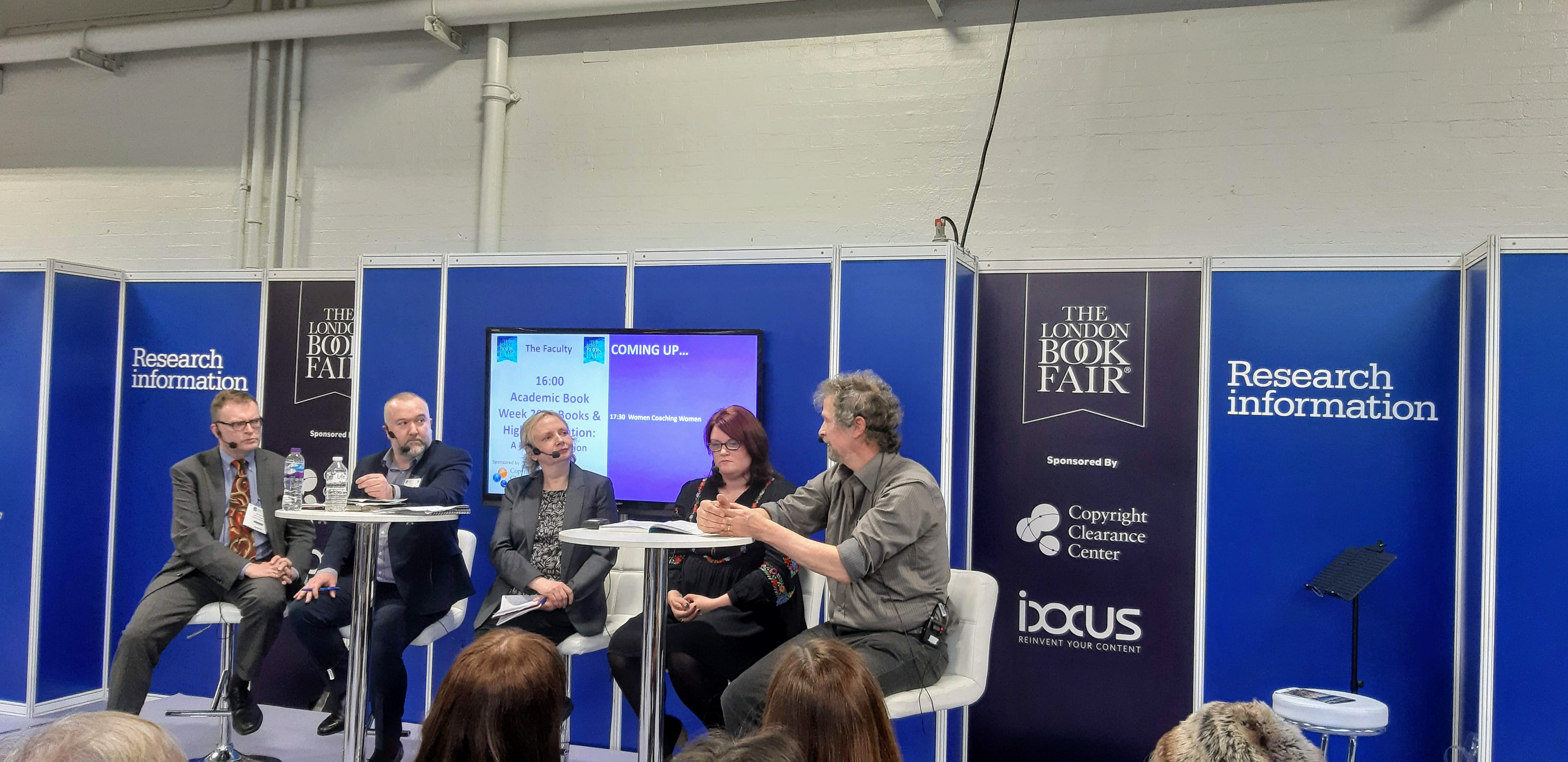Mid-March, I attended the London Book Fair for the first time in my life. This is a massive event where publishing professionals from all over the world come to negotiate rights and sell and distribute their content. Over 25,000 people attend on average! I knew it was massive, but wow, it was really, really massive.

I attended the Fair for several reasons. First, I wanted to better understand the publishing industry and its trends and challenges. Second, I wanted to see which publishers could benefit from my services and approach them. Third, I wanted to meet and network with other editors and publishing professionals.
I can definitely say that I achieved these three goals! First, I walked around for hours exploring what was on offer. Over 1,000 exhibitors had set up their stands, from small publishers to the massive houses like Penguin Random House and HarperCollins (who had proper pavilions).

The exhibitors were organized by genre: non-fiction and fiction, further divided into academic books, poetry, children’s books, travel books, and so on. Of course I spent most of my time walking around the academic publishers’ section, taking photos of each publisher I was interested in.

I also attended several talks on the publishing industry. Each section had its own “theater” where presentations and roundtables were held. I learned that the printed textbook is definitely alive in academic publishing, since most students prefer to learn from actual paper, not screens. As a millennial I find this pretty logical. Having a physical copy of a book makes it easier to take notes, go back and forth between chapters and sections, and get a feel of how much there is still left to read and learn. I also attended a session on Creative Commons licensing, which was very informative (who knew that there six different licenses?).

My exploration of publishers led to the fulfillment of my second goal. This was definitely the scariest part of my visit: I went and talked to those publishers that I thought could benefit from my services. I selected eighteen of them, approached them at their stands, and inquired whether they were interested in hiring a freelance academic editor. This went surprisingly well: I received a number of business cards from representatives who invited me to submit my CV and I left my card with several other representatives who were interested. So far, I have gotten one new client from these explorations: I was sent an editing test, passed it, and was added to their directory of freelancers. I aim to follow up on my initial emails to the others soon. I definitely had to get over my nerves but as I approached more publishers, I got less nervous.
Finally, my third goal, networking with editors and other professionals, was definitely achieved. The British Society for Editors and Proofreaders (SfEP) had set up a stand staffed by a range of lovely volunteers; all editors. I spent time hanging out there and meeting great people and went out to dinner with two editors (hi Beth Hamer and Nicky Taylor!).

The SfEP had organized a presentation titled “Authors Are Our Business: The Collaborative Relationship Between Editor and Author,” with presenters Gale Winskill and Margaret Hunter explaining what is involved in editing. The session was a great success, with many people attending it and crowding around the presenters to ask questions afterwards.

Finally, I did some more networking by attending a session by Byte the Book, an organization that seeks to connect professionals in the publishing industry. We were invited to write down what we needed help with and what we could offer others, and to stick these notes on a wall. Then, everyone could peruse everyone else’s notes and inquire about their services or offer our own services. I connected with two writers who needed an editor and was able to inform them about the editing process and point them to the right directories (since they were fiction writers, I was not the right fit for them).
All in all, after three days on the Fair, I was exhausted. I had walked around a lot (on the first day, the step counter on my phone stated that I had walked over twelve kilometers!), talked to many people, and gathered up the courage to approach publishers. However, I also achieved the goals I had set myself before going, and I am very happy that I went!

I have been reading posts regarding this topic and this post is one of the most interesting and informative one I have read. Thank you for this!
Are you up to another book fair that will awaken your passion in reading, writing, and everything in between? If you are, then you should look forward to The London Book Fair 2021.
LikeLike
Thank you so much! And thanks for alerting me to the 2021 edition!
LikeLike